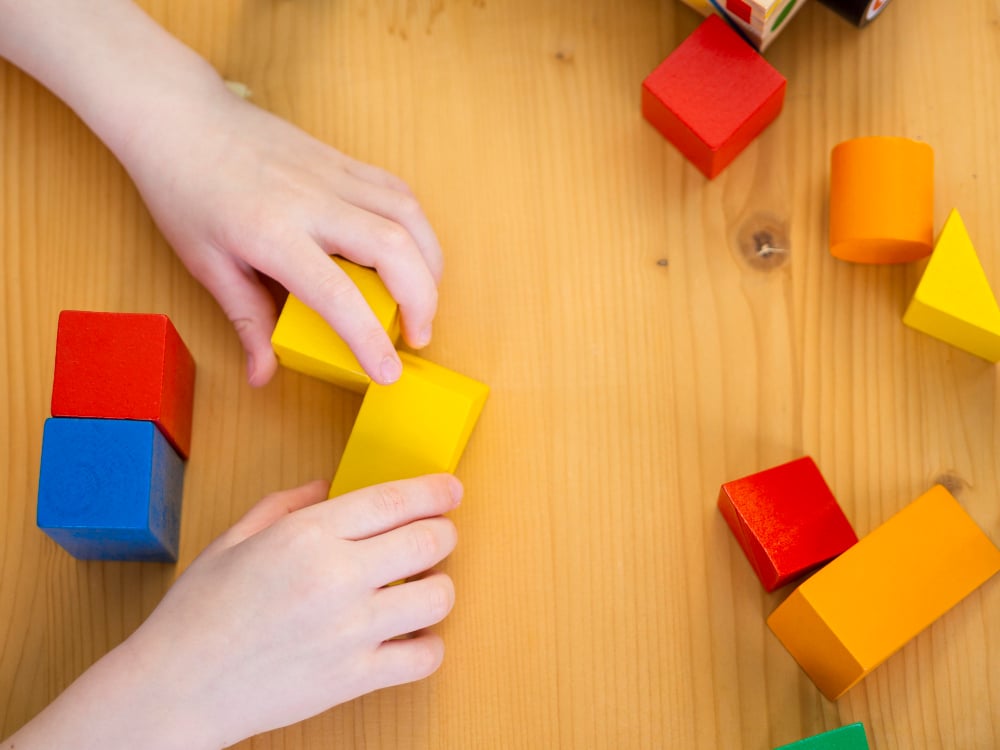The Power of Block Play in Child Growth and Development
 Block #play is more than just a fun activity for children; it is a foundational experience that supports their cognitive, social, emotional, and physical #development. Early childhood #educators who understand the significance of block play are better equipped to #nurture children’s #growth—a key competency when working toward a Child Development Associate (CDA) Credential.
Block #play is more than just a fun activity for children; it is a foundational experience that supports their cognitive, social, emotional, and physical #development. Early childhood #educators who understand the significance of block play are better equipped to #nurture children’s #growth—a key competency when working toward a Child Development Associate (CDA) Credential.
Why Block Play Matters
Blocks provide endless possibilities for exploration, creativity, and learning. This simple yet versatile activity offers children opportunities to develop critical skills in a hands-on, engaging way.
Key Benefits of Block Play
Cognitive Development
Block play enhances problem-solving skills, spatial reasoning, and #early #math-concepts. When children build structures, they experiment with balance, symmetry, and geometry, laying the groundwork for future academic success.
Example Activities:
- Sorting blocks by size, color, or shape.
- Creating patterns and sequences.
- Estimating the number of blocks needed to complete a structure.
Social and Emotional Development
Group block play fosters collaboration, negotiation, and conflict resolution. It helps children practice sharing, taking turns, and communicating their ideas effectively.
Example Activities:
- Building a community together with peers.
- Assigning roles in constructing a project (e.g., one child gathers blocks, another plans the design).
Physical Development
Manipulating blocks develops fine and #gross-motor-skills. Lifting, stacking, and balancing blocks require coordination and precision, which support hand-eye coordination.
Creativity and Imagination
Blocks allow children to create worlds of their own, fostering imagination and creativity. They can build castles, cities, or imaginary landscapes, enhancing storytelling and dramatic play.
Incorporating Block Play into CDA Competency Standards
Block play aligns with several CDA Competency Standards, making it an essential tool for educators pursuing their CDA Credential. Here’s how:
Competency Goal I: Safe and Healthy Learning Environment
Block play teaches children spatial awareness and #safe handling of materials. Educators can create designated block areas to minimize accidents and encourage safe play.
Competency Goal II: Advancing Physical and Intellectual Competence
Block play directly supports intellectual development through problem-solving and math concepts. It also strengthens motor skills as children manipulate various block shapes and sizes.
Competency Goal III: Supporting Social and Emotional Development
Encouraging group block play fosters collaboration, #empathy, and teamwork—skills critical for children’s social and emotional growth.
To deepen your understanding of how block play meets these goals, explore our CDA training courses that provide strategies for integrating block play into your teaching practices.
Resources for Educators
Training Opportunities
- The Best Promotion is Play: Discover the importance of play in child development, including practical applications of block play. Enroll in this course.
Helpful Articles
- The Power of Play: Unleashing Potential in Early Childhood Education: Learn how play-based activities like block play support holistic development.
Practical Tools
- Lesson Plan Template: Streamline your planning with this downloadable resource. Access it here.
Tips for Successful Block Play
To maximize the benefits of block play, consider these tips:
Organize Your Block Area
- Ensure blocks are accessible and sorted by size and type.
- Provide enough space for creative exploration.
Incorporate Real-World Themes
- Encourage children to recreate familiar environments, such as neighborhoods or landmarks.
- Use props like toy cars, animals, or figures to enhance imaginative play.
Facilitate Learning Through Open-Ended Questions
- “What do you think will happen if you add another block?”
- “How can you make your structure taller?”
Celebrate Achievements
- Display completed structures to boost confidence and pride.
- Encourage children to explain their creations to peers.
Get Inspired on Social Media
Follow ChildCareEd on Instagram for creative block play ideas and #classroom inspiration. You can also explore Pinterest for more hands-on activities that support child development.
Block Play: A Step Toward Your CDA Credential
Incorporating block play into your teaching practices not only benefits children but also strengthens your portfolio for the CDA Credential. By demonstrating how block play aligns with CDA standards, you showcase your ability to create a rich, #developmentally appropriate learning environment.
For more information, visit ChildCareEd or CDA Certification to access training, resources, and expert guidance. Together, let’s build a strong foundation for the next generation!